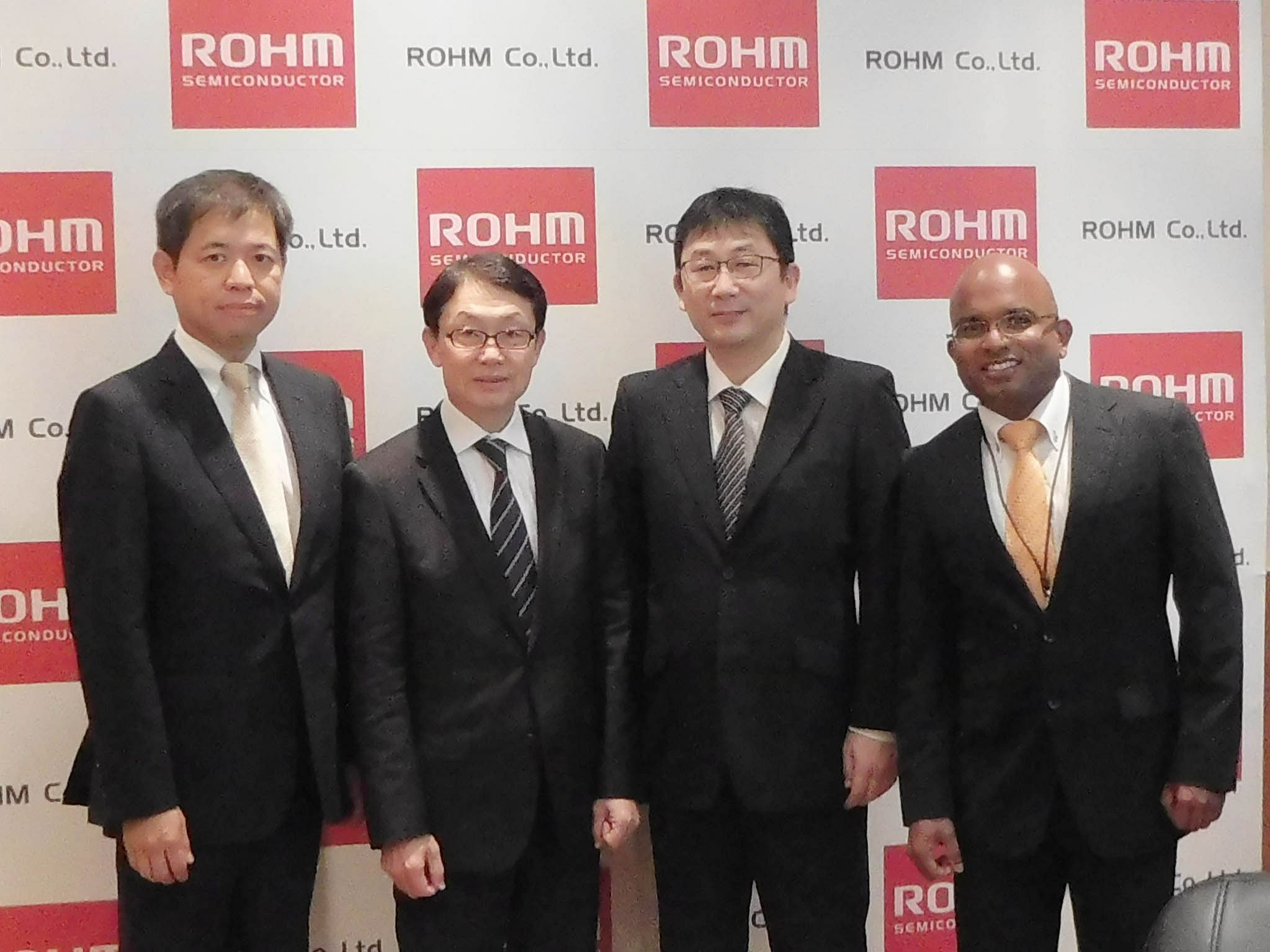ROHM Semiconductor eyes gains in India with new switching regulator for EVs, XEVs
The new integrated circuit (IC) utilises company's Nano Pulse Control Technology and is designed to step down voltages from 48 or 60V to 2.5V.
ROHM Semiconductor, the US$ 3.2 billion Japanese semiconductor manufacturer, has revealed plans to enter the Indian market with its low power and energy efficient power supplies to meet upcoming demand for electric vehicles (EVs) and hybrid-electric-vehicles (also called xEV).
ROHM has introduced its new power control regulator (BD9V100MUF-C), suited for application in 48V or 60V electric and hybrid powertrain vehicle architectures.The new integrated circuit (IC) utilises company's Nano Pulse Control Technology and is designed to step down voltages from 48 or 60V to 2.5V, meant to run the electronic components, especially in the case of mild-hybrids, which are designed to be powered by such highly rated batteries.
The Nano Pulse Technology aims to cut down on circuit components by deploying a single DC-DC convertor, which brings down the source voltage down to 2.5V, at a constant 2MHz frequency, thus, offering a stable supply of current to the electronic bits, including the internal components of the battery control module (BCM) and ECU in a mild-hybrid or electric vehicle.

L-R: Daisuke Nakamura, MD, ROHM Semiconductor India; Haruyuki Nishimura, director, Corporate Communications HQ, ROHM Co; Tetsuo Tateishi, GM, Advanced Power Technology Development Division; LSI HQ, ROHM Co; and Britto Edward Victor, Design Centre Head, ROHM Semiconductor India.
ROHM’s new regulator reduces the minimum ON time to 9 nanoseconds to achieve this high step-down ratio. According to Daisuke Nakamura, managing director, ROHM Semiconductor India, “Currently mild-hybrid vehicles with 48V systems offer 70 percent of the efficiency offered by full hybrids or EVs, albeit in a much more cost effective way at around 20 percent of the cost. But, with battery prices slated to move down drastically in the next few years, the equation could be reversed.”
The company views extensive scope of these devices in automotive, industrial and solar applications, and has projected an 11 percent CAGR between FY2017-FY2021 coming in from the automotive space.
With ADAS technologies also making their way into automobiles at a rapid pace, ROHM is working with key global players, including Bosch, Continental, Denso, Intel, Renesas and Varroc to supply highly efficient semiconductor devices for these systems. The company is also supporting Formula E as an official technology partner to the Venturi Formula E team.
According to Britto Edward, head, Design Centre India, ROHM Semiconductor India, “Indian consumers will be benefited from the adoption of some, if not all, of ADAS systems, and our market could see safety systems like pedestrian advance, obstruction detection and automatic parking to be coming into the new models getting introduced in the near future.”
The company is eyeing 22 percent CAGR (FY2017-FY2021) from its supplies for ADAS systems, going into components like cameras, millimetre wave radars and signal processing ICs for Sonar. Powertrain will bring 20 percent CAGR during the same period with the step-down semiconductor devices going into hybrids and EVs; and infotainment devices too will contribute an 8 percent CAGR.
ROHM Semiconductor, which entered the Indian market in 2006, now has an established sales network in the country, alongside a development centre in Bangalore with 45 research and design engineers.
According to Daisuke Nakamura, "India is a growing market and we are targeting over 30 percent CAGR coming through our automotive business in the country by 2020.”
RELATED ARTICLES
Cosmo First diversifies into paint protection film and ceramic coatings
The Aurangabad, Maharashtra-based packaging materials supplier is leveraging its competencies in plastic films and speci...
JSW MG Motor India confident of selling 1,000 M9 electric MPVs in first year
The 5.2-metre-long, seven-seater luxury electric MPV, which will be locally assembled at the Halol plant in Gujarat, wil...
Modern Automotives targets 25% CAGR in forged components by FY2031, diversifies into e-3Ws
The Tier-1 component supplier of forged components such as connecting rods, crankshafts, tie-rods, and fork bridges to l...






 16 Nov 2017
16 Nov 2017
 8563 Views
8563 Views





 Autocar Professional Bureau
Autocar Professional Bureau




